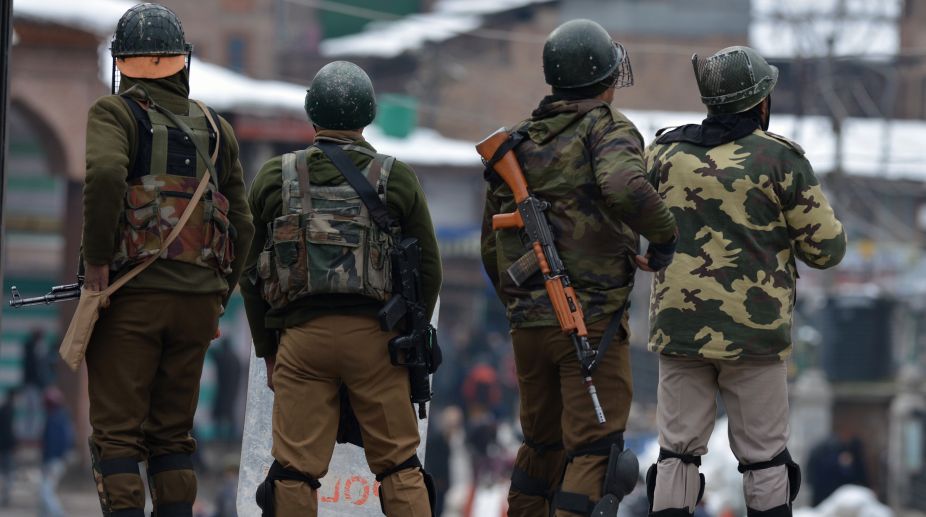Powerful IEDs recovered near LoC ahead of polling for Udhampur seat
Reports said that the IEDs were recovered near the Line of Control (LoC) in a joint search operation by the Rashtriya Rifles of the Indian Army, CRPF and J&K Police.

(PHOTO: AFP)
The Jammu and Kashmir police officers describe it as an “incident”, but several security observers apprehend something more sinister to the uncovering of a nexus between a section of the force and “Over-ground Workers” (OGWs) of militant outfits After a patrol squad nabbed Adil Ahmad Negroo, who is linked with the Hizbul Mujahedin, near a Circuit House in troubled Shopian and recovered 25 live rounds of AK- 47ammunition, a series of arrests and quite a stock of “police ammunition” was seized.
A couple of other OGWs were also rounded up. This is the second case in recent months in which ammunition etc has been diverted from police stocks to militants. Thus far investigations have failed to conclude that the material was only sold to the militants, and that raises disturbing questions on the extent to which policemen have been compromised, or “won over” by the militants.
The chief minister would do well to appoint an inquiry panel, including members of the CRPF, and perhaps the Army as well, to probe the extent of the “penetration”. Diversion of stores may only be the tip of the proverbial iceberg. If information on police patrol patterns and other “operational” inputs are also being passed on, the vexed situation could become even more complex.
Advertisement
This is not to make any sweeping condemnation of the J&K police which has been in the forefront of the fight against militants ~ even if that is only reluctantly accepted by the Central forces ~ but only to stress the need for alert supervision. In fact the state government owes it to the rank and file to expose the “black sheep”. For the men need to be enlightened on the extent of internal “informants” ~ their very lives could be dependent on that
. It would be myopic not to believe that there are sections of Kashmiri society with whom the cry for azadi resonates, though all of them might not favour violent disruption of normal life. The desire for azadi may not end with getting a job with the police (even though unemployment is a major “issue” in the Valley) and there is every possibility of the militants, and their crafty handlers, identifying cops who could be “turned”.
In fact it must be accepted that such an effort is being made by the anti-national elements. Policemen are also vulnerable because their families living in towns and villages get little or no “protection” and they are under pressure to assist the militants. A sustained effort has to be made to weed out “undesirables” in the force and at the same time look to the welfare of the men committed to their jobs, and their families too. It cannot be over-emhasised that a strong local police is the bedrock upon which any security edifice is raised.
Advertisement